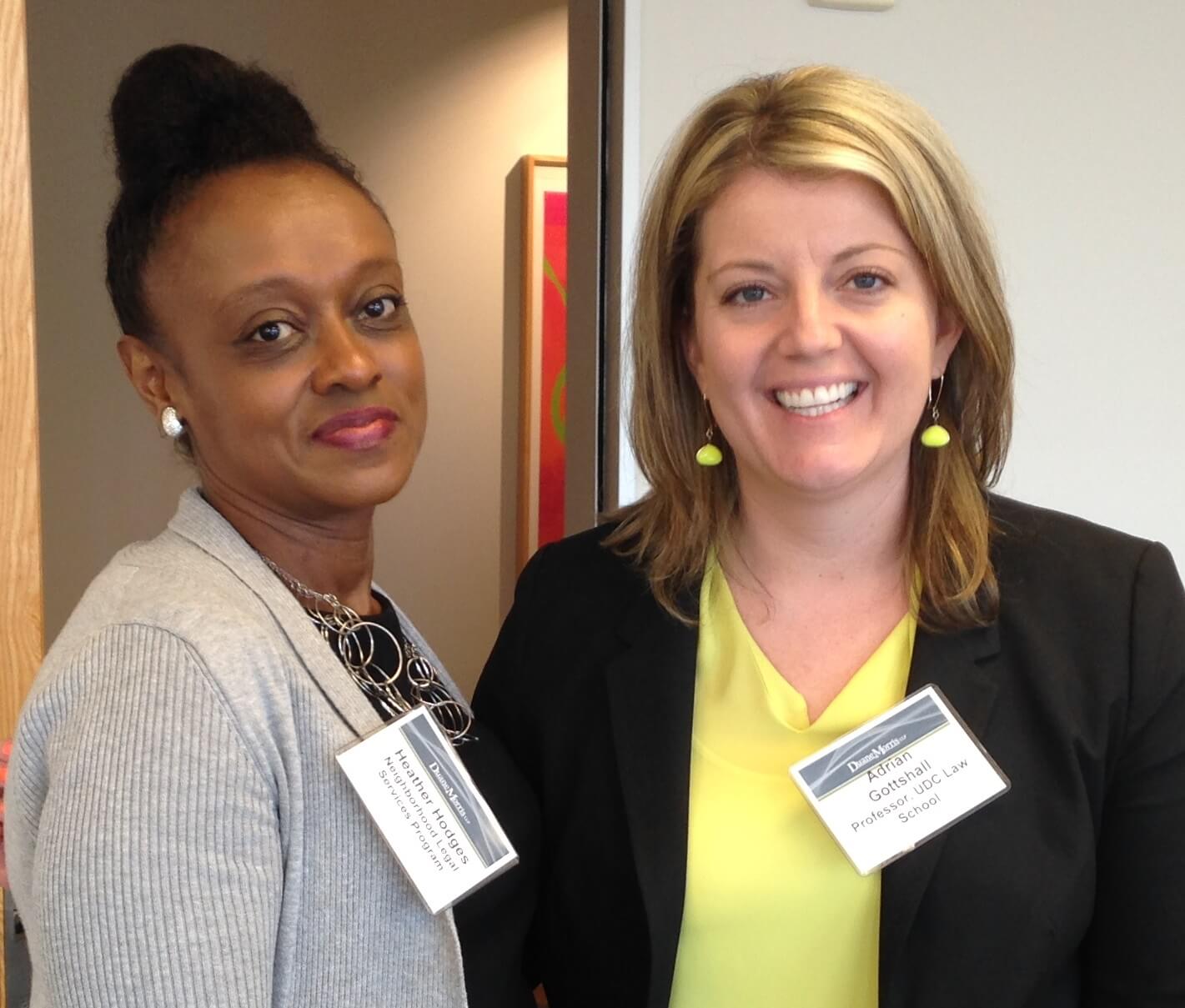
Protecting the Veterans Who Protected Us
By Ryan C. Wilson
For veterans, applying for government benefits and housing can feel like David fighting Goliath. A confusing array of deadlines and eligibility requirements often choke veterans’ efforts to get the benefits to which they are entitled. And when veterans attempt to find housing, post-service disabilities can expose them to slumlords who bypass the legal process and force them out on the streets. The Washington Post recently highlighted two veterans who were forced to live in their Southeast apartment for months during the winter without heat and then locked out without their possessions.
The Veterans Legal Assistance Project, a new collaborative of legal-services providers, advocates for veterans in situations like these. The project’s lawyers represent veterans holistically: Not only do they help their clients obtain federal disability-compensation benefits and military-discharge upgrades, they also represent them in landlord-tenant and family-law cases.
Groups like the Project are helping to fill a staggering need. Many veterans suffer from substance abuse, mental illness, and cognitive and physical disabilities as a result of their service. These conditions can lead to homelessness—about 9% of the nation’s homeless people are veterans. Adam Marshall, Project Manager of the Veterans Legal Assistance Project and a staff attorney with the Neighborhood Legal Services Program, reports that of the Project’s 60 active cases, eleven involve people who were homeless in the past decade.
Many of these veterans are homeless because they had no counsel in housing court. “It helps when anyone has a zealous legal advocate in housing court,” says Adrian Gottshall, Clinical Instructor at the UDC School of Law’s Housing and Consumer Law Clinic and former NLSP staff attorney. “There is such a shortage of legal representation for tenants. Ninety percent of tenants who face eviction are unrepresented.”
Adrian has seen this problem firsthand. “Having a lawyer often makes the difference between living on the streets and having a roof over your head,” she says, recalling a client who was profiled in the Post article. After he was locked out of his home, her client eventually became homeless, “couch surfing” with acquaintances and sleeping at shelters and in cars. He died while his lawsuit was pending, having never obtained permanent housing. But as a result of the advocacy by Adrian and other lawyers, the local agency that owned the property was removed from VA’s referral list.
To continue to make a difference in their clients’ lives, the Veterans Legal Assistance Project also needs help from the private bar. “We have some very good pro bono partners,” says Frank Natale, Litigation and Advocacy Director of NLSP, including lawyers from firms such as Duane Morris. But he can always use more. To help entice lawyers to take veterans’ cases, the project has adopted a clinic model—volunteers can help with discrete parts of several cases rather than handling a single case from start to finish.
Pro bono lawyers who do work on these cases emphasize that they are among the most rewarding that they have worked on. “I have so much appreciation for the veterans’ resiliency,” Adam says. “Going through their case files, and reviewing their circumstances, you often need time to process all the challenges the veterans have faced.” Yet despite these challenges, he says, the veterans are wonderful clients: “Veterans are very goal-oriented. They want deadlines. They want homework. They want to know what they can do to help their case.”
For Frank, representing veterans honors his own family’s legacy of service. Everyone in Frank’s family is a veteran, including both his parents and his grandfather, who saw active duty. Frank himself wanted to enlist, but his family insisted that he go to college, and he became the first member of his family to become a lawyer. To honor their service, Frank says, “I see this project as my way to give back to a community that I was unable to join.”
Ryan Wilson is a Washington Council of Lawyers volunteer and senior trial attorney with the Federal government.
We’ve joined Twitter! Follow us at @EastOfRiver_DC.






